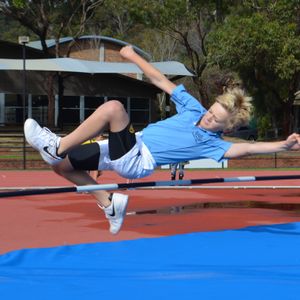Critical Confidence
“Love is the most important element for development – love grows confidence and brains.” Nathan Wallis
Over the last few weeks, I have had the benefit of hearing from two world renowned educators and researchers, Professor John Hattie (Laureate Professor at the University of Melbourne) and Nathan Wallis (Neuroscience Educator and Counsellor).
Both Professor Hattie and Nathan Wallis highlighted the importance of relationships in reducing stress and developing confidence in the critical primary school years. Hattie stated that the key disposition for successful learning and achievement is confidence, with Wallis pointing out that your belief in yourself as a learner (how you see yourself), is paramount.
It can be helpful to understand that the human brain has 4 key functioning areas.
Brain 1: The brainstem - key to survival, engaging the heart and ultimately allowing breathing.
Brain 2: The cerebellum - coordinating movement and thinking.
Brain 3: The mammal brain - controlling limbic emotion and feeling (also known as the parenting brain).
Brain 4: The frontal cortex - responsible for emotions, language, reading, empathy etc. Its primary function is self-control - ‘Making yourself do the things you don’t want to do because you know they’re good for you’.
The problem is that our brain works from the bottom up, so while our frontal cortex (Brain 4) separates us from other animals, we can only access it through Brains 1-3.
This is where relationships, the foundation of learning, come in.
Wallis spoke about the connection between stress and learning, highlighting that stress stops learners from accessing their frontal cortex. He emphasised that the more we can enhance predictability, the more we can ensure a calmer brainstem, allowing the frontal cortex to be accessed.
Strong relationships with parents and teachers enhance predictability, reduce stress, and provide a conducive environment for learning and the development of confidence.
Mosman Prep is a smaller school with an unusually high staff ratio. We are better able to appreciate the individual needs of our boys, and work in close partnership with parents to support their son’s wellbeing and learning. We have a history and knowledge of our boys that facilitates genuine growth, the reduction of stress, increased confidence, and meaningful preparation for their future.
The rich opportunities at Prep and the smaller school population allows our boys to experience a wide range of activities and leadership opportunities, develop a broad set of skills, succeed, and grow in confidence.
For the Spirit God gave us does not make us timid, but gives us power, love and self-discipline. 2 Timothy 1:7
Peter Grimes | Headmaster
Background
Professor John Hattie is an award-winning education researcher and best-selling author, with nearly 30 years of experience examining what works best in student learning and achievement. Over the years, he has authored over 38 books, published and presented over 1200 research papers, and keynoted at more than 350 conferences. Currently, he is Laureate Professor at the University of Melbourne, and past Chair of the Australian Institute of Teaching and School Leaders.
Nathan Wallis is a father of three (and foster parent) with a professional background in child counselling, teaching and social service management. He has lectured in Human Development at the University of Canterbury in New Zealand, and was also a board member and senior trainer with the national body responsible for the dissemination of neuroscientific research to professionals. Nathan is a regular on Radio and Television shows in New Zealand, sharing his expertise on child development, as well as delivering around 200 seminars to education professionals and parents each year in New Zealand, Australia and internationally.















